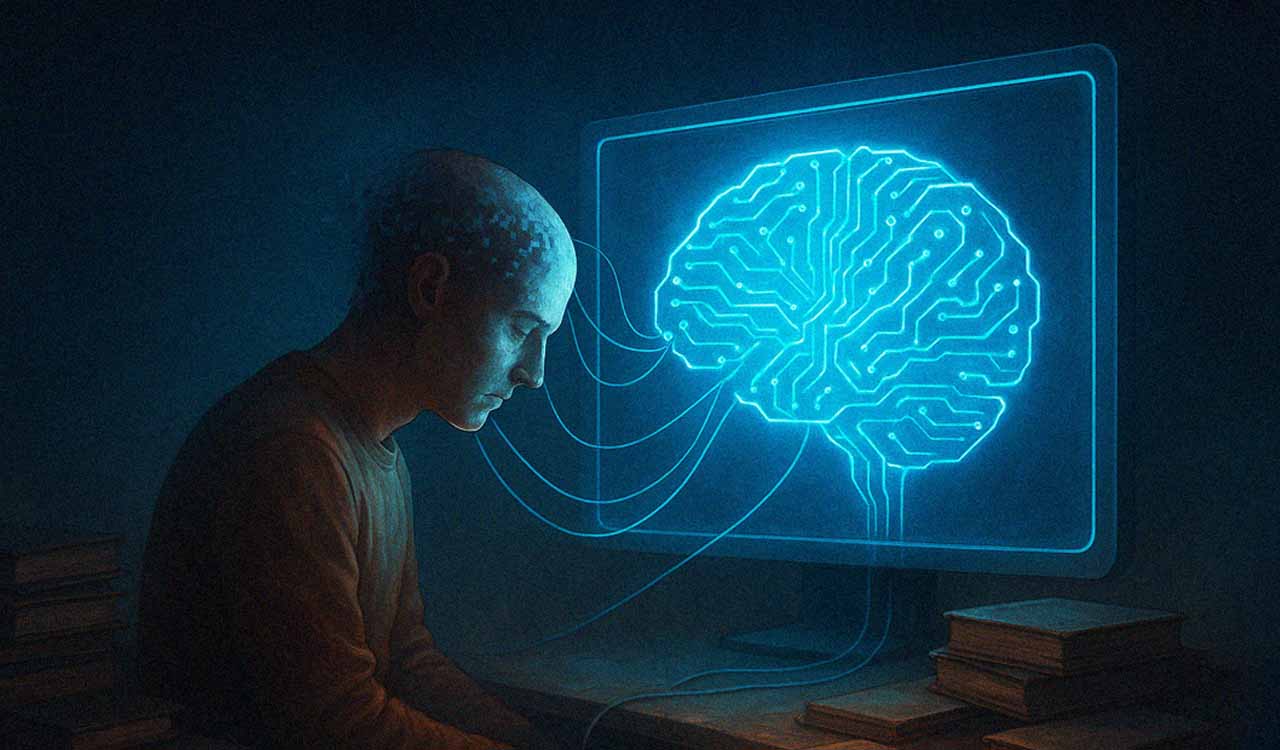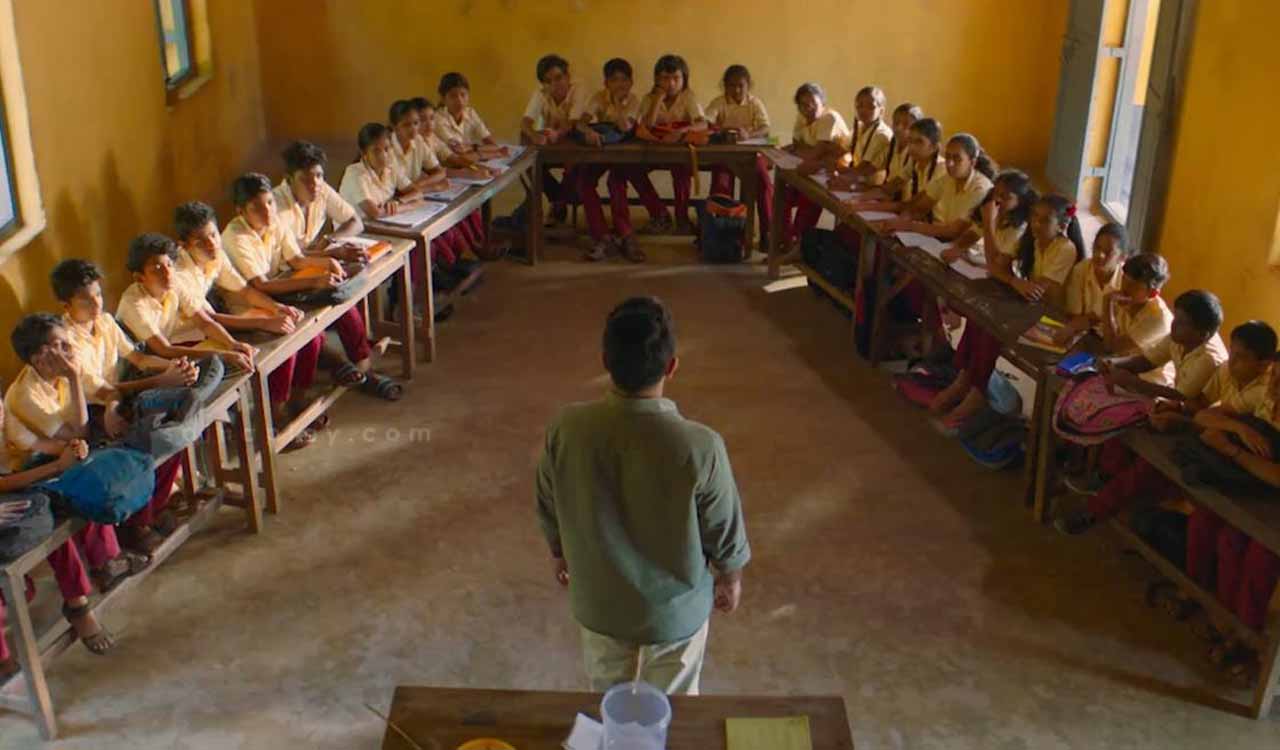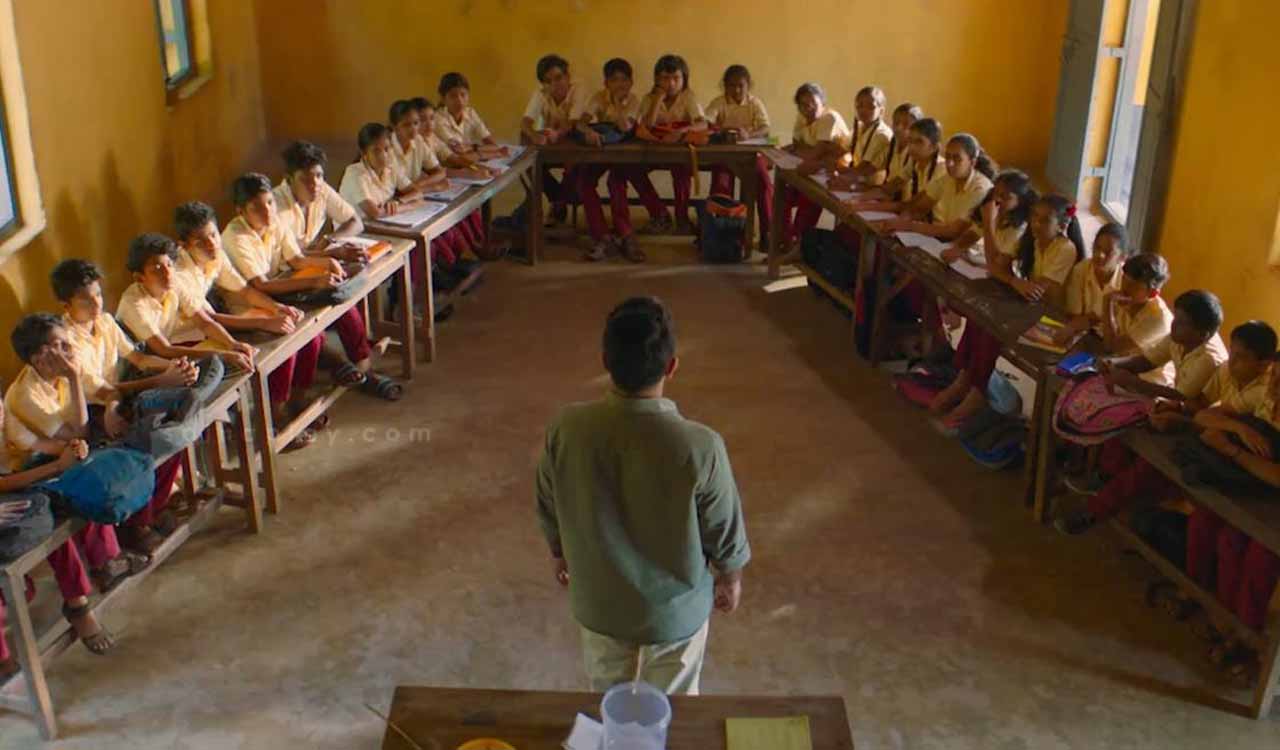The Ultimate Question: What happened to curiosity?
The future of education — and our collective future — relies upon nurturing curiosity and the courage to ask audacious questions

By Mourya Viswanadha
“It is not the answer that enlightens, but the question.” Einstein once said, “If I had an hour to solve a problem and my life depended on the solution, I would spend the first 55 minutes determining the proper question to ask. For once I know the proper question, I could solve the problem in less than five minutes.”
This quote stayed with me — not because of the problem-solving logic, but because of its deeper wisdom: the power lies in asking the right question.
I first encountered this idea as a child reading The Hitchhiker’s Guide to the Galaxy by Douglas Adams, a science fiction classic. In the novel, a race of hyper-intelligent, pan-dimensional beings builds a supercomputer called Deep Thought to find the Answer to the Ultimate Question of Life, the Universe, and Everything. After 7.5 million years of calculating, Deep Thought finally gives the answer: 42.
But here’s the twist — the beings realise the answer is nonsensical — because they never even knew what the Ultimate Question was to begin with.
So, Deep Thought proposes creating an even greater computer to discover the Ultimate Question itself — and that computer ended up being planet Earth.
This story beautifully illustrates that often, finding the right question is far harder than finding the answer. Once you know the right question to ask, the answer becomes much clearer — or at least solvable.
When I was a kid, I had lots of questions — sometimes too many! Over time, I noticed that I had fewer questions and eventually stopped asking them. I don’t believe this happened because I naturally became less curious, but more because the system does not always encourage questioning. This realisation gave me a sense of just how important it is to nurture that natural curiosity.
This brings me to education — and where we might be going wrong.
Today’s classrooms remain largely focused on memorisation, rigid curricula, and standardised tests — preparing students for a world that has long disappeared. The Annual Status of Education Report (ASER) 2023 highlights that nearly 25 per cent of students aged 14–18 in rural India can’t even read a Grade 2-level text fluently, while more than 50% cannot perform basic math calculations — even though they’ve been schooled.
These numbers aren’t just statistics — they reflect a system that teaches students to answer, but not to ask. The Ultimate Question: What Happened to Curiosity?
A UNESCO 2021 report found that 90 per cent of Indian classrooms still follow a teacher-centric approach, giving little room for enquiry or exploration. And a NITI Aayog study in 2022 revealed that less than 30 per cent of students engage in enquiry-based learning.
This isn’t just an academic concern — it affects real lives and futures. The India Skills Report 2024 shows that only around 50 per cent of Indian graduates are considered employable, with a lack of critical thinking, communication, and problem-solving cited as major gaps.
As physicist Richard Feynman said, “I would rather have questions that can’t be answered than answers that can’t be questioned.” It’s a profound reminder that uncertainty, curiosity, and intellectual humility are what drive human progress.
Elon Musk says, “I came to the conclusion that what really matters is trying to understand the right questions to ask.” He believes that the more we can expand the scale and scope of human consciousness, the better we become at asking meaningful questions — and through that, better at understanding the universe.
Closer to home, Dr Anil Sahasrabudhe, Chairman of the National Educational Technology Forum, emphasised: “Our education must transform from content delivery to curiosity cultivation.”
So, what is the ultimate question?
Maybe there isn’t just one. But what matters is that we keep asking — thoughtfully, fearlessly, and curiously. In a world of rapid answers, it’s the slow, difficult, beautiful questions that propel us forward.
The future of education — and our collective future — relies upon nurturing curiosity and the courage to ask audacious questions. When we shift our focus from memorising answers to nurturing inquisitive minds, we prepare not just students, but society itself, with the ability to adapt to an ever-changing world with creativity and wisdom.
So, the ultimate question is: how will we choose to change education today, to address the challenges of tomorrow?
(The author holds a master’s degree from the University of Texas at Dallas. He is currently a member of Sigma Xi, The Scientific Research Honor Society, USA)
Related News
-
Class 10 students must appear in first board exam: CBSE
16 mins ago -
Revanth Reddy’s sharp ‘U’ turn triggers political debate, leaves Congress leaders miffed
26 mins ago -
CPI’s corporator elected as the first mayor of Kothagudem Municipal Corporation
2 hours ago -
Sultanabad chairman selection postponed
2 hours ago -
Congress infighting erupts at Choutuppal municipal office ahead of chairperson poll
2 hours ago -
Adilabad’s Mukhra (K) residents celebrate KCR birthday on a grand style
2 hours ago -
Jitin Prasada calls AI Summit a ‘Mahakumbh’ for artificial intelligence
2 hours ago -
Dream come true: Hyderabad lad hits 100% in JEE Main
2 hours ago




